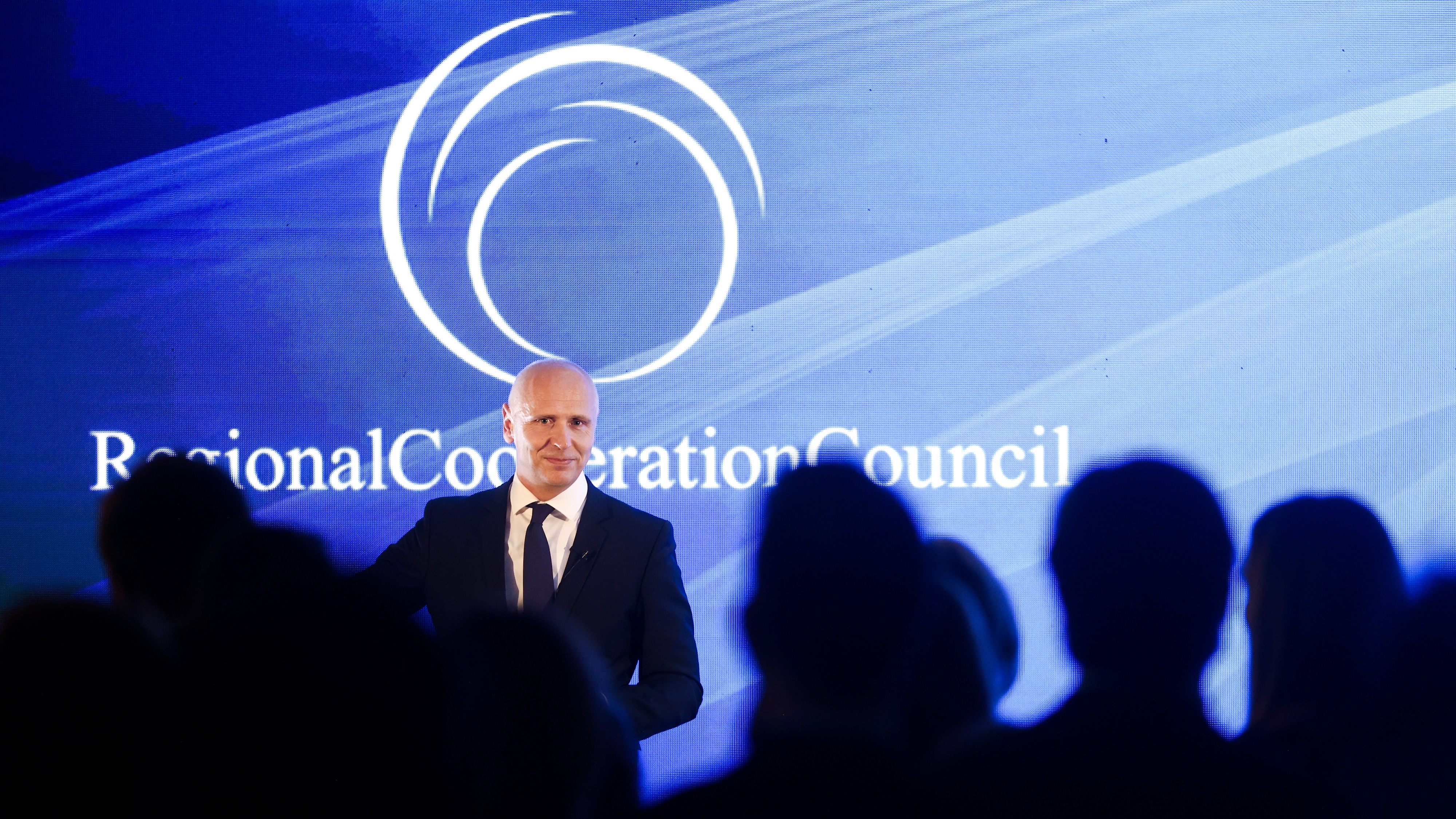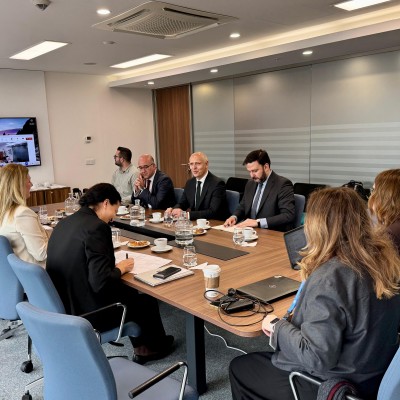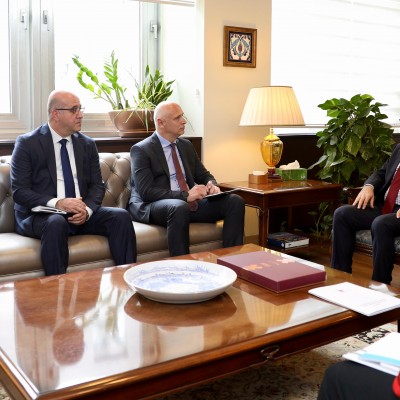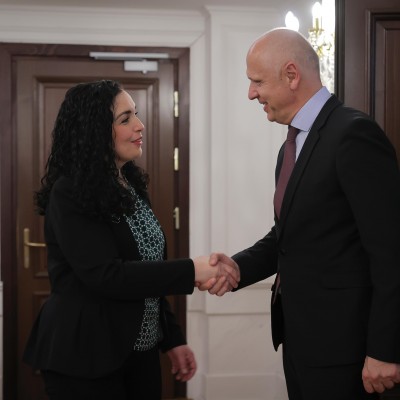RCC Celebrates 17 Years of Advancing Regional Cooperation and Integration Kapetanovic: We are not just working on building policies but shaping a future where our region is fully prepared for the challenges ahead
20 February 2025

RCC Secretary General Amer Kapetanovic marking 17th anniversary of the Regional Cooperation Council (RCC) at the reception held on 20 February 2025 in Sarajevo (Photo: RCC)
Sarajevo – The Regional Cooperation Council (RCC) marked its 17th anniversary, celebrating nearly two decades of fostering closer ties, economic integration, and regional stability across South East Europe, at a reception held in Sarajevo last night. Since its establishment at the meeting of the Ministers of Foreign Affairs of the South-East European Cooperation Process (SEECP) in Sofia on 27 February 2008, the RCC has been at the forefront of initiatives that have brought tangible benefits to the region, including the removal of roaming charges in the Western Balkans and its reduction between the region and the EU, improved mobility for businesses and professionals, and strengthened cooperation on digitalisation, green transition, and security.
Reflecting on RCC’s journey and its vision for the future, RCC Secretary General Amer Kapetanovic emphasized the organisation's pivotal role in shaping regional cooperation: "Seventeen years ago, RCC was launched with a vision—to bring this region closer together, making it more competitive, more connected, and more resilient. Today, that vision is a reality in motion and is more relevant than ever. From enabling businesses to grow across borders to making everyday life easier for citizens, regional cooperation has delivered real, measurable progress. But we are not stopping here—our region is evolving, the world is changing, and RCC remains committed to leading the way towards a stronger, more competitive, and more integrated Western Balkans within the South East Europe and EU, but in global arena too.”
Over the years, RCC has played a key role in bringing regional economies closer to the European Union, advocating for policies that align with EU standards and ensuring that regional cooperation translates into direct benefits for the people. From the Common Regional Market and South East Europe 2030 initiatives to efforts on green and digital transitions, as well as security cooperation, RCC continues to drive forward a regional agenda that is both ambitious and inclusive.
As the organisation looks ahead, its focus remains on fostering greater economic opportunities, supporting youth and innovation, and ensuring that the Western Balkans remains a strong partner in the European and global landscape.
“The work we do today, together with our partners, will resonate for years to come. We are not just working on building policies—we are shaping a future where the Western Balkans is fully integrated, competitive, and prepared for the challenges ahead. Cooperation is the key, and RCC will continue to be a driving force behind it,” added the Secretary General.
To mark this milestone, RCC hosted a reception gathering representatives of RCC participants, partnering and civil society organisations, diplomatic corps, and media to reflect on past achievements and the next steps in regional cooperation.



